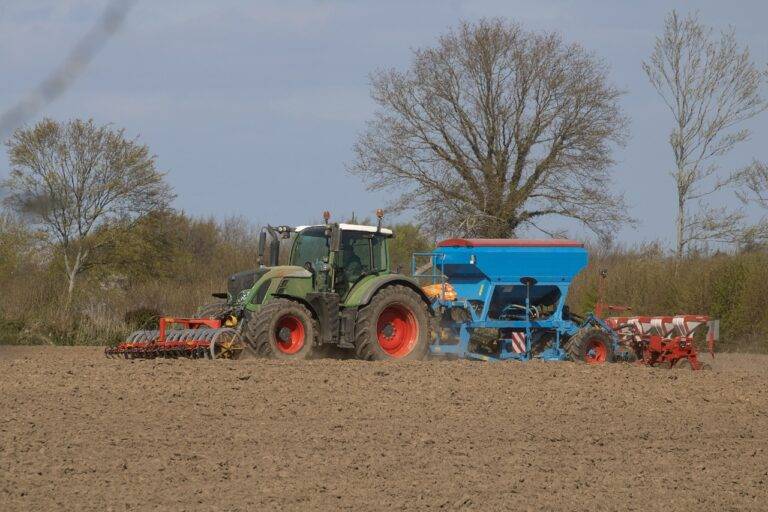The Role of Agribusiness in Climate-resilient Food Systems: Silverexch, Goldenexch. Bet, Betbook247
silverexch, goldenexch. bet, betbook247: Agribusiness plays a crucial role in creating climate-resilient food systems that are essential for feeding a growing global population while mitigating the impacts of climate change. Climate change poses significant challenges to food production and distribution, including extreme weather events, shifting growing seasons, and threats to food security. Agribusinesses, which encompass a wide range of activities related to agriculture and food production, have the potential to drive innovation and sustainability in the face of these challenges.
In this article, we will explore the key role of agribusiness in building climate-resilient food systems and how businesses in this sector can contribute to a more sustainable future.
The Role of Agribusiness in Climate-Resilient Food Systems
1. Sustainable Agriculture Practices
Agribusinesses can lead the way in promoting sustainable agriculture practices that are essential for building climate-resilient food systems. This includes embracing regenerative agriculture, which focuses on restoring the health of the soil, reducing carbon emissions, and promoting biodiversity. By investing in sustainable farming techniques such as cover cropping, crop rotation, and conservation tillage, agribusinesses can help farmers adapt to a changing climate and reduce their environmental impact.
2. Technology and Innovation
Technology plays a crucial role in modernizing agriculture and making it more resilient to climate change. Agribusinesses can leverage cutting-edge technologies such as precision farming, drones, and sensors to optimize resource use, increase productivity, and reduce waste. By investing in research and development, agribusinesses can develop innovative solutions to address the challenges posed by climate change and ensure a sustainable food supply for future generations.
3. Supply Chain Resilience
Agribusinesses are responsible for managing complex supply chains that span the globe. Climate change can disrupt these supply chains through extreme weather events, crop failures, and other factors. Agribusinesses can build resilience in their supply chains by diversifying sourcing locations, investing in climate-smart infrastructure, and adopting sustainable practices. By working closely with suppliers and partners, agribusinesses can ensure the continuity of food production and distribution even in the face of climate-related challenges.
4. Sustainable Packaging and Waste Reduction
The food industry generates a significant amount of waste, including packaging materials and food waste. Agribusinesses can reduce their environmental footprint by adopting sustainable packaging solutions, such as biodegradable materials and reusable containers. Furthermore, agribusinesses can work to minimize food waste throughout the supply chain by improving storage and transportation practices, implementing recycling programs, and donating excess food to those in need. By reducing waste and embracing sustainability, agribusinesses can contribute to building a more climate-resilient food system.
5. Climate Smart Financing
Agribusinesses play a crucial role in financing agricultural activities and supporting farmers in their efforts to adapt to climate change. By providing loans, grants, and other forms of financial assistance, agribusinesses can help farmers invest in climate-smart technologies, sustainable practices, and resilience-building measures. By incorporating climate considerations into their financing decisions, agribusinesses can support the transition to a more sustainable and climate-resilient food system.
6. Consumer Education and Engagement
Agribusinesses can play a key role in educating consumers about the importance of sustainable food choices and the impact of climate change on the food system. By promoting awareness and engagement around issues such as food waste, carbon emissions, and biodiversity, agribusinesses can empower consumers to make more informed decisions and support sustainable practices. Through marketing campaigns, educational programs, and partnerships with community organizations, agribusinesses can inspire positive change and drive demand for climate-resilient food products.
Conclusion
Agribusinesses have a critical role to play in building climate-resilient food systems that can withstand the challenges of a changing climate. By embracing sustainable practices, investing in technology and innovation, building resilient supply chains, reducing waste, providing climate-smart financing, and engaging consumers, agribusinesses can drive positive change and contribute to a more sustainable future. Through collaboration, innovation, and a commitment to sustainability, agribusinesses can help ensure that the food system remains resilient, productive, and environmentally responsible for years to come.
FAQs
Q: What are some examples of sustainable agriculture practices?
A: Sustainable agriculture practices include cover cropping, crop rotation, conservation tillage, agroforestry, and organic farming.
Q: How can agribusinesses reduce food waste in the supply chain?
A: Agribusinesses can reduce food waste by improving storage and transportation practices, implementing recycling programs, donating excess food to those in need, and working to minimize losses throughout the supply chain.
Q: Why is consumer education important for building climate-resilient food systems?
A: Consumer education is crucial for raising awareness about the impact of food choices on the environment, promoting sustainable practices, and driving demand for climate-resilient food products. By engaging consumers, agribusinesses can inspire positive change and support a more sustainable food system.







